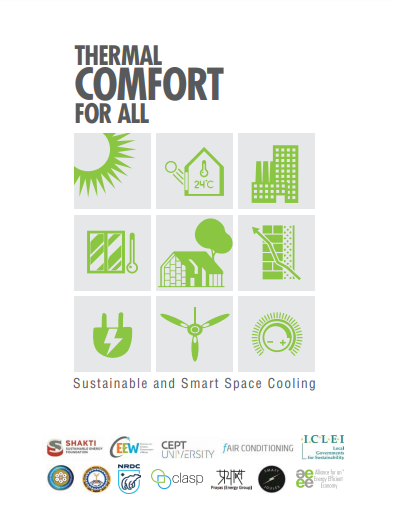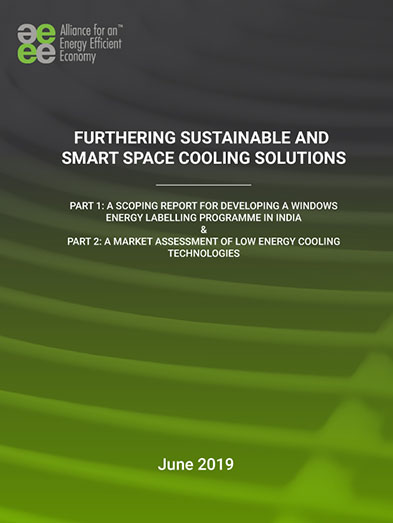Thermal Comfort for All (Phase 1 )
AEEE with support from Shakti Sustainable Energy Foundation (SSEF), took the initiative in bringing together research and academic institutions, industry associations, and non-profit organisations, to form the Sustainable and Smart Space Cooling Coalition.
As one of the initial tasks in the drive for Thermal Comfort for All, the Coalition members have jointly prepared this report with a twofold intent: (1) to bring together dispersed sustainable and smart space cooling strategies, as well as the independent initiatives from the government and the private sector; and (2) to propose a set of recommendations designed to promote the vision of thermal-comfort- for-all through the use of energy efficient and environmentally sustainable cooling strategies and technologies. The report provides a holistic view on sustainable and smart space cooling strategies and recommends the adoption of Lean, Mean and Greenspace cooling strategies to meet India’s thermal comfort needs.
Furthering Sustainable and Smart Space Cooling Solutions (Phase 2)
This report includes two-part
(1) a scoping report for developing a window’s energy labelling programme in India:
With significant growth in the real estate sector on the horizon, it is important to roll out a window labelling programme for India. Window labelling can help developers and end-users choose the right windows for minimising the ingress of heat into buildings, thereby reducing the cooling energy consumption needed for maintaining satisfactory levels of indoor thermal comfort.
(2) a market assessment of low energy cooling technologies and mainstream their use in suitable application areas and climate zones:
In this Part, low energy cooling technologies refer to unconventional cooling technologies that are not as energy-intensive as vapour compression cooling. These can be used as either standalone cooling systems or in conjunction with conventional air-conditioning. These technologies offer advantages of reduced cost or complexity, increased reliability, peak demand reduction, energy savings, and GHG reduction.

Thermal Comfort for All
